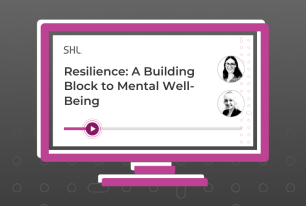3 Important Lessons on How to Overcome Your COVID Blues
Many of us feel the COVID blues at the moment. Learn some lessons we can take from positive psychology to get back control of our work and private lives.
Share
On March 11th the World Health Organization officially characterized COVID-19 as a pandemic. Today, just about a year later, most of us cannot believe that we are still in this pandemic and we desperately wait for someone to finally tell us “it is over”. But that is exactly the problem. The newspapers are full of studies that report how the pandemic impacts our well-being, mood, and happiness. This is not surprising, given that we suddenly face ourselves in a life that we have not chosen and that is imposed on us from the outside.
But there are some simple ways of changing this feeling if we manage to stop waiting and get back control. Here is a little guidance on how to do that:
#1—Stop Waiting
The first thing you need to do is to stop waiting for the end of the pandemic. The day when someone announces “it is over, you can do everything like before” will not come. We will go back to some kind of “normal”, but it will be slow and step-by-step and no one knows how long it will take. It might well be another 2, 3, 5 years or even 10.
I know this sounds negative – but try to think back on the beginning of the pandemic, didn’t it sound completely mad when people said it would still be there a year later? It certainly did for me, just like the thought that it could go on for another 5 years does now. But this is how our brain works: it tries to protect us from the negative by denying it can happen. But in fact, this is what holds us back from tackling reality as it is. This is what keeps us waiting for a change of circumstances instead of creating this change ourselves. COVID will stay as long as it will stay, irrespectively of what we think about how long it will stay.
#2—Break the Habit
Now when you have started to accept what we cannot change anyway, start looking ahead. Take 1 min to think about the one thing you would do differently if you knew COVID, the lockdown or the current situation would go on for the next 5 years. This question will help you identify the behaviors/actions that you established under the assumption that “it is only for a few weeks” and then they have become a habit.
Again, it is our brain that tries to save us from an overwhelming environment by quickly establishing routines and habits. But the sole goal is to free up capacity in your brain, not to make you happy. We need to question our routines intentionally to find out if they are the right thing to do or not. Take this 1 minute now – whilst you read this. Your brain will need something to hold on to if you do not want it to steer you back to your initial road. What is the one thing that you want to change?
We need to question our routines intentionally to find out if they are the right thing to do or not.
#3—Take Back Control – Let’s Talk about What We Can Do
The last thing you need to do is take back control and make the change happen. By accepting the reality, you gave yourself permission to invest energy from within (instead of waiting for the change to come from the outside). You have then identified what is the one thing that you are doing (or not doing) that you are not willing to continue for another 5 years.
Now, think about ways to change. Do not limit yourself through the obvious: just because the fitness center is closed, that does not mean there are not million other ways to exercise. Do a thorough analysis of what it is that you are really missing. For most people, the fitness center has a secondary purpose outside of playing sports. There is either the “social element” of doing it together or the “implicit pressure” of paying for the membership. Whatever it is for you, if you are clear on what you are missing, you will find ways to get there.
If you are feeling the COVID blues, you are not alone. What is described above for you as an individual can also be true for us as a society. Most of us focus too much on the question of “when will it be over” instead of finding ways to make this pandemic work for all of us. We all—politics, journalists, individuals—should stop talking about what we are not allowed to do during the pandemic. Instead, we should talk about what we CAN do. Let’s start sharing ideas and inspire others and let’s collectively get back control within the boundaries of what we cannot change anyway.
Contact us to learn how we can help you build a solid talent acquisition and talent management program in the new normal.









